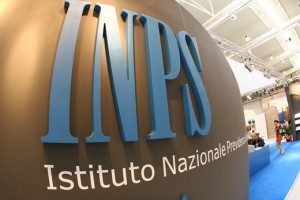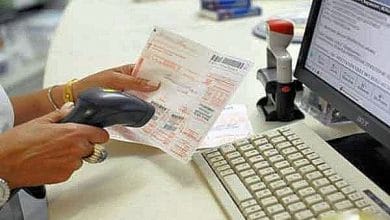
THE hospital doctors, both in the wards and in the emergency room, are required to draw up the certificate of illness and if they do not do so, they risk being charged for omission of official documents, the disciplinary offense pursuant to the Brunetta circular (pa. ministry) 1/2011 and the consequent dismissal foreseen even by law". He has no doubts Luca Puccetti president of the Promed Galileo Association and architect of an important battle in Pisa, right to hand, to impose the sending of forms to INPS to those who do not comply.
hospital doctors, both in the wards and in the emergency room, are required to draw up the certificate of illness and if they do not do so, they risk being charged for omission of official documents, the disciplinary offense pursuant to the Brunetta circular (pa. ministry) 1/2011 and the consequent dismissal foreseen even by law". He has no doubts Luca Puccetti president of the Promed Galileo Association and architect of an important battle in Pisa, right to hand, to impose the sending of forms to INPS to those who do not comply.
The case is also mounting in his Tuscany, «colleagues in many hospitals deny an important right to the worker and do not know that their "no" can have legal consequences. For example, for civil servants according to law 133/2008, the penalty on the salary day exists for those who are absent from work and produce a family doctor's certificate but not for those who produce an emergency room sickness certificate (and no other document, such as a white prescription) certifying that a disease kept him in the hospital during working hours».
So the hospital doctor is required to certify, even on the NHS prescription if the software doesn't work, «under penalty of being reported for omission of official documents in the most serious cases. Without prejudice to the deontological obligation and disciplinary punishment. The dismissal is foreseen by the Brunetta law 165/2001 in article 55 septies paragraph 4, which is "mandatory by collective agreements". So they contemplate it there Inps circular 2/2010 and the national hospital contract. I really don't understand the controversy in Lombardy - says Puccetti - since in the circulars the INPS recommends drawing up the health certificate at least on paper. Nor do I understand who, while correctly distinguishing between certification of illness and recovery, forgets that the law Brunetta changed the law and shifted the center of gravity of the certification of illness from the doctor who, in addition to information on the pathology, has all the patient's anamnestic information (the "caregiver" who can also be a public or private specialist) to the doctor who materially ascertains the pathology directly, which may well be to first aid. Pursuant to the law, certification is the responsibility of the latter».
 Is it possible that it is not certified because the Inps circular 2/2010, while airing the licensability of the doctor, adds that "the full application of the sanctioning system requires the definition of clear conditions for action and a certain operational framework"? «The same circular makes it possible, starting from February 2011, to challenge the failure to issue the certificate to the doctor and, at the very least, to the hospital which does not put him in a position to operate well, making the software available or, at worst, the department letterhead on which the data of the discharged worker and the working prognosis and not the clinical one must be entered, pursuant to paragraph 6 of article 55 septies of the Brunetta.
Is it possible that it is not certified because the Inps circular 2/2010, while airing the licensability of the doctor, adds that "the full application of the sanctioning system requires the definition of clear conditions for action and a certain operational framework"? «The same circular makes it possible, starting from February 2011, to challenge the failure to issue the certificate to the doctor and, at the very least, to the hospital which does not put him in a position to operate well, making the software available or, at worst, the department letterhead on which the data of the discharged worker and the working prognosis and not the clinical one must be entered, pursuant to paragraph 6 of article 55 septies of the Brunetta.
From that day on, the combined provisions of the articles on the subject play against the hospital doctor. If he doesn't realize it, I say meanness, it's because often it's not a doctor who discharges the patient but a head nurse nurse who isn't qualified to write the certificate of illness. If, by dint of not defending one's rights as doctors, one ends up in trouble, then there is no reason to complain with the family doctor who refers the patient back to you not to deny him rights but to give them back to him».
Mauro Miserendino – Thursday, 11 June 2015 – Doctor33
Related news: Adverse reactions from generics. Promed Galileo: Aifa monitors Regions that limit access to branded drugs
Self-certification of illness for the first three days, the debate arrives in the Senate





